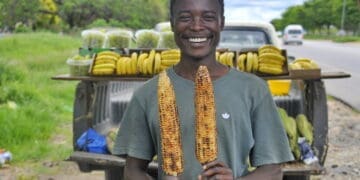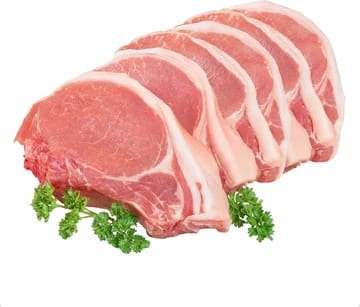South Africa is set to receive new shipments of poultry and pork from the United States in the coming weeks, following government concessions that relaxed tariff restrictions.
While this move promises cheaper prices for consumers, it has sent ripples of concern through the country’s small and medium-sized meat producers.
Township butcheries, small abattoirs, and livestock farmers warn that the influx of imported meat threatens to push many of them out of business.
The South African Poultry Association (SAPA) has been among the most vocal critics of the arrangement.
SAPA CEO, Izaak Breitenbach, described the government’s decision as “alarming” and accused policymakers of failing in their responsibility to protect local producers.
“This decision was taken without consultation and threatens the survival of thousands of small farmers and workers in the poultry value chain,” he said.
South Africa has long imported poultry, with Brazil as its main supplier.
However, the arrangement with the United States is different because it is tied to the African Growth and Opportunity Act (AGOA).
Under this trade framework, South Africa allows up to 72,000 tonnes of American poultry into the country duty-free each year.
Producers argue that this quota, introduced as part of broader trade negotiations, tilts the market against local SMEs who are already struggling with high operating costs.
For small businesses, the timing could not be worse. Feed prices remain elevated due to global supply pressures, while frequent water shortages in provinces such as Limpopo and the Free State have disrupted operations.
Consumer demand has also softened as households tighten budgets, leaving township butcheries and abattoirs fighting to stay afloat.
The fear is that a sudden surge of cheaper imports will drive down local prices to unsustainable levels.
“We are already struggling with high input costs. If more cheap chicken floods the market, we will not survive,” said Thabiso Dlamini, who runs a family-owned butchery in Pietermaritzburg.
He explained that many township-based suppliers operate with little cash reserves, making them particularly vulnerable to sharp price shifts. “Large retailers may benefit from these imports, but for small businesses like ours, it could be the final blow.”
The situation also highlights a long-standing debate about the balance between trade policy and local livelihoods.
While AGOA has helped South Africa maintain access to the American market for goods such as citrus, wine, and automobiles, the poultry concessions have been a source of tension.
Industry bodies argue that by granting duty-free access to American chicken, the government has sacrificed the interests of smaller local producers in exchange for benefits in other export sectors.
For SMEs in the meat value chain, the consequences are immediate and personal.
Township butcheries and small abattoirs often employ local residents, support small-scale livestock farmers, and form part of the informal economy that sustains communities.
If their margins shrink further, job losses and closures could follow, deepening unemployment in areas where opportunities are already scarce.
The new shipments from the United States are expected to arrive within two weeks, creating an immediate test for the resilience of South Africa’s small meat businesses. For entrepreneurs like Dlamini, the concern is not just about this month’s imports, but about the longer-term trajectory of trade policy. If imports continue to rise unchecked, the livelihoods of thousands of small-scale meat suppliers could hang in the balance.
lazola@vutivibusiness.co.za


























































